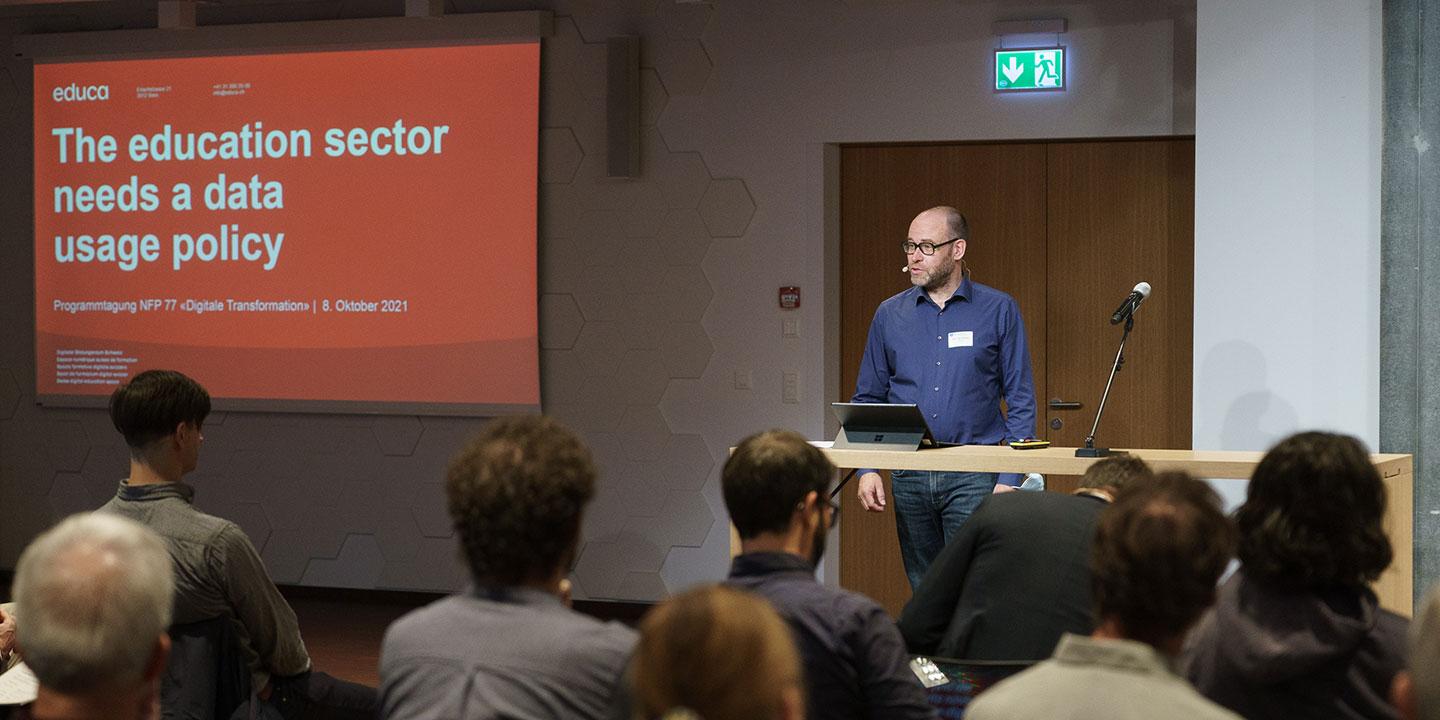The data dilemma facing the education system

Almost all school activities are affected by digitalization, which brings with it a gigantic volume of data: curse or blessing for the education system?
Dorothee Brovelli, Pro-Rector of Research and Development at the Lucerne University of Teacher Education, can immediately think of a varied range of exciting areas that could profit from a broad database: "For instance, we would be able to understand and presumably also predict pupils' learning progress even better if we link it with other factors such as behaviour, background and pedagogic innovations," explained Brovelli at the first programme meeting of the National Research Programme "Digital Transformation" (NRP 77). "Or if a specific school produces particularly good grades, we could use their data to understand where the key to their success lies." As a researcher, Brovelli sees new and broader data sources as the key to optimising education at all levels. She is nevertheless also aware of the need to use data discerningly.

Large volumes of data produce more correlations – but do they also show a causal relationship? Is the quality of the results guaranteed? Depending on who is collecting or providing the data, the notorious selection bias cannot be ruled out either. And not least: how do researchers gain access to these new data sources, and how do they find out about them?

The topic of access is also central to Andreas Klausing. He is a member of the executive board of Educa, the federal specialist agency for the Swiss digital education space. Educa's remit includes creating a programme for the development of a Swiss-wide data usage policy. "Who decides data access and release policy? Do the interests of research outweigh the individual interests of, say, pupils?" questions Klausing. The objective is to find a way to use data conscientiously, while at the same time locking into and utilising the research potential that digitalisation offers in the education arena. Klausing views this approach as crucial also for researchers working on the current NRP 77 projects of the “Education, learning and digital change” module.
Data capture and research are just one aspect. The other is how teachers employ these new tools. Dorothee Brovelli encounters two opposing attitudes among her students: some are sceptical about data collection and as teachers have certain misgivings about someone looking over their shoulder – suddenly their own performance is being logged as well. As Brovelli elaborates, however, these misgivings reflect the fact that a teacher's performance can be misinterpreted if, for example, pupil achievement is low despite strong teaching. On the other hand, the researcher has also noticed a growing interest on the part of teachers to incorporate elements of the research into their own teaching practices. Klausing and Brovelli concur that if the possibilities afforded by digitalisation are thoughtfully harnessed, the education sector can move even further in the direction of "evidence-based teaching".
NRP 77 project: Teacher competencies for digital transformation in STEM teaching
After a sometimes difficult start to the research phase due to the pandemic, practically all projects have picked up speed and in many cases have even produced their first interim results. This was the time to bring together for the first time research and practice, to whom the results of a National Research Programme are addressed. At the first programme meeting, personalities from the circle of stakeholders formulated their theses, questions and expectations of NRP 77. Researchers reflected and countered. All in all, it was a day of intensive exchange.
